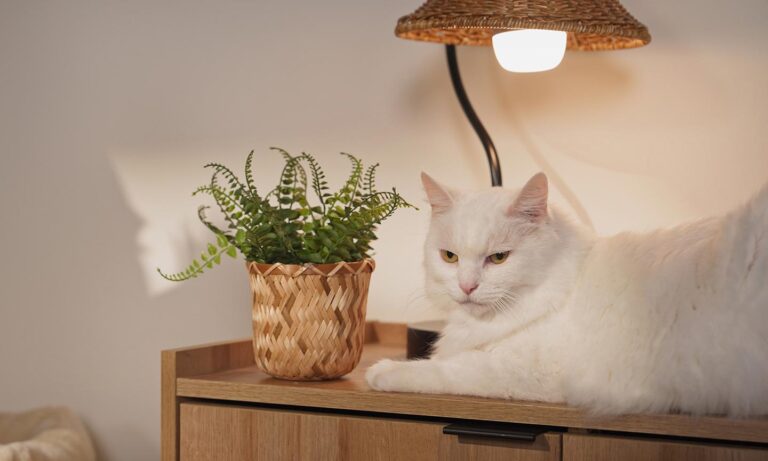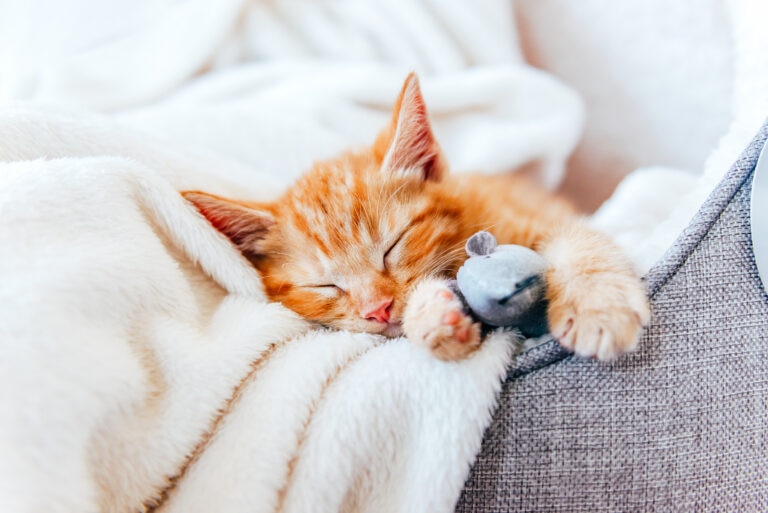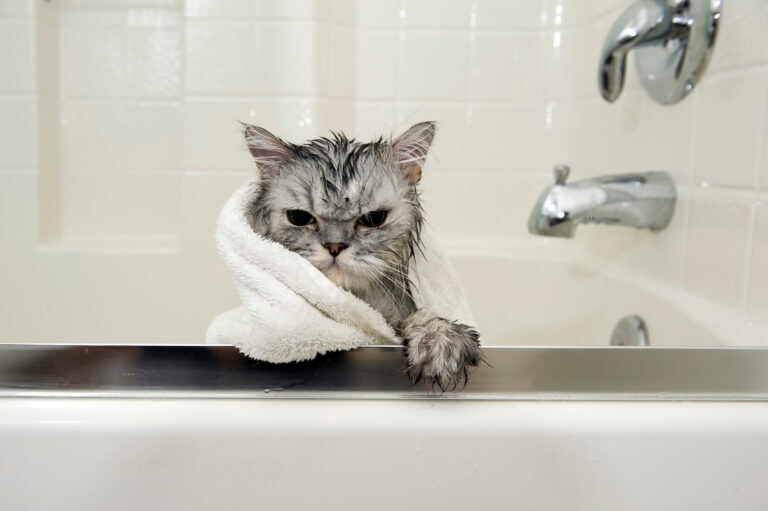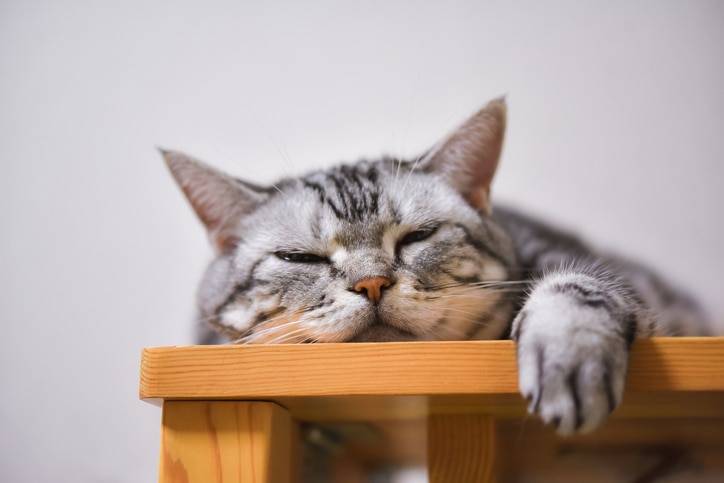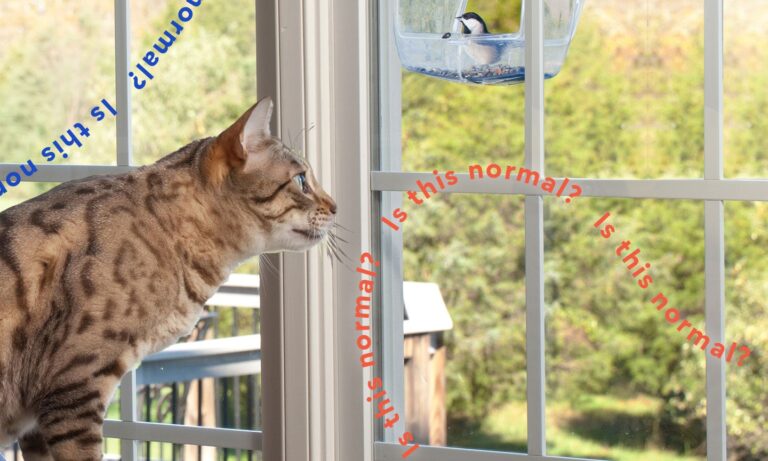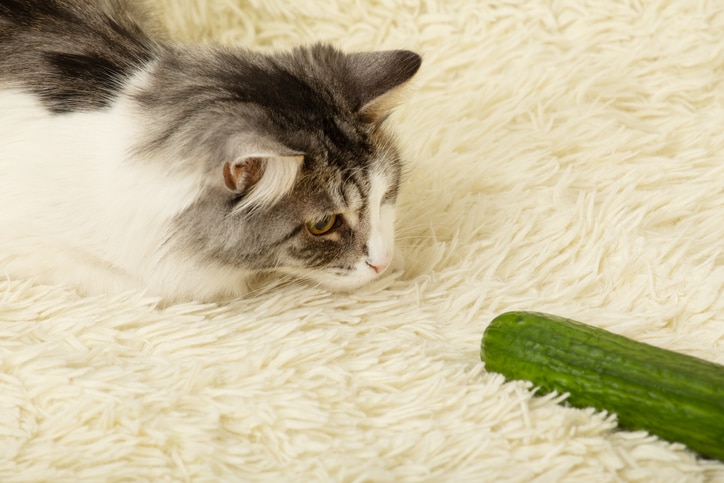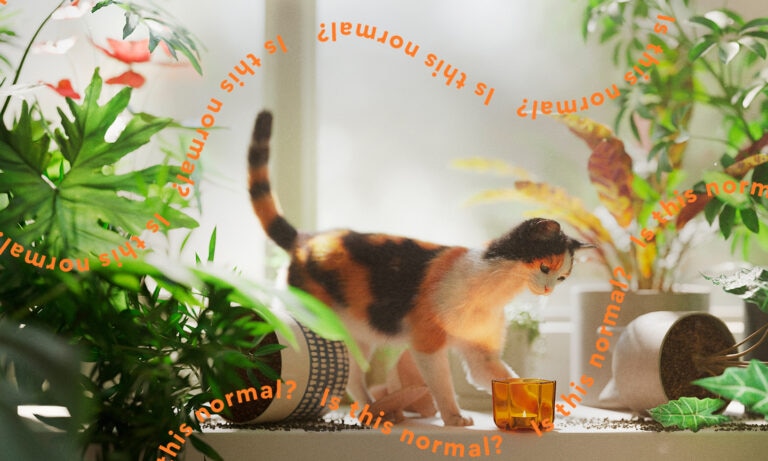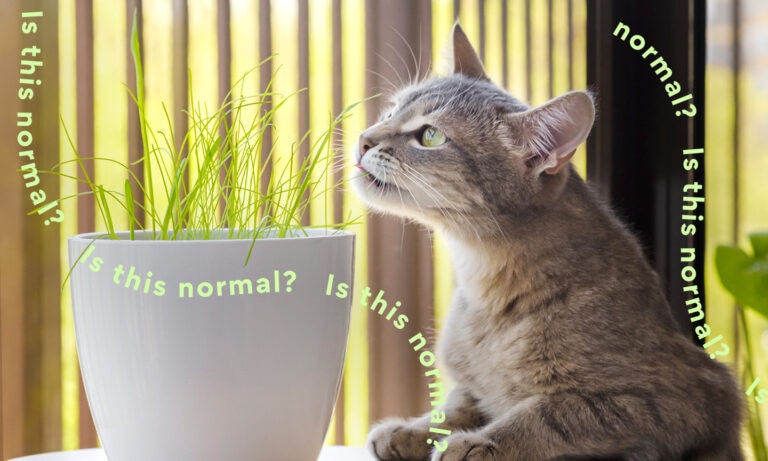Why Do Cats Hate Closed Doors? Is This Normal?

Photo by Chewy Studios
Q: Sometimes I need a minute to myself, but my cat freaks out when I close the door. Why do cats hate closed doors? Is that normal?
A: Yes, it’s probably a bit of FOMO: They want to know what you’re doing in there.
The members of iconic British punk band The Clash have never really explained the lyrics to their classic track “Should I Stay or Should I Go?” but it’s probably safe to assume that they weren’t thinking about cats. Regardless, several of those lines—especially the “If I go there will be trouble/If I stay it will be double” part—seem to go through our cats’ heads every time we open or close a door inside the house. If they’re in a room, they want to get out. If they’re outside the room, they want to get in… until you start to turn the doorknob. Then they want to stay right where they are.
Alright, what's my cat doing? Is it possible that they're just messing with me?
“Anything is possible, right? I mean, there are people who have claimed to see the Loch Ness Monster,” says Dr. Lisa Radosta, DVM, DACVB, owner and a veterinary behaviorist at Florida Veterinary Behavior Service. “The reality is that cats are super-smart, and that we don’t always know what they want.”
There a several reasons why cats hate closed doors:
- They are curious creatures and want to know what’s on the other side.
- They feel trapped.
- They want to be where the action is.
- It’s a learned behavior.
- They have separation anxiety.
And those reasons may change depending on the day. Cats are complex little animals. We don’t always have the same motivation for repeating a particular behavior, so we can’t expect that our cats do either. Dr. Radosta breaks the possible reasons down for us further.
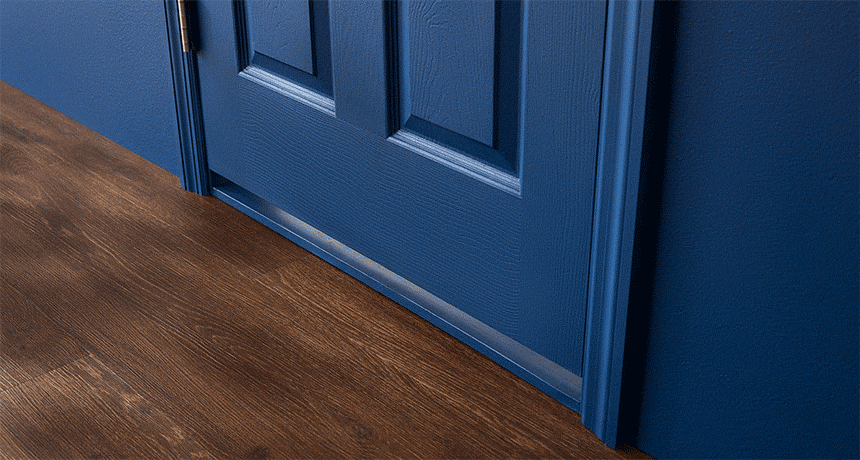
They're curious.
Your cat may simply be curious about what lies on the other side of the door. As Dr. Radosta explains, maybe your cat is in one room, but decides that they want to see if a second room is different from the one they’ve been sitting in, so they’ll sit at the closed door and meow until you open it.
“She looks inside the other room, and [thinks] ‘Nope, it’s about the same,’ so she leaves,” Dr. Radosta says. “The pet parent attaches emotions to that when it was simple curiosity.”
They feel trapped.
Another reason why cats hate closed doors is that they may not feel comfortable being confined to one room all day. They feel trapped, and in the words of another British band, Queen, they want to break free.
“She may like that room, but she doesn’t want to stay there all day,” Dr. Radosta says.
The cat may not even want to actually leave the room, rather they just want to have the option of leaving. Dr. Radosta describes this scenario: Your cat was napping when the door was shut, and much to her surprise, wakes up to see that the door is closed. She was never taught to stay in a room, and this feels stressful. She meows, and you open the door. Your cat’s immediately relieved that she isn’t shut in.
“She doesn’t necessarily have anywhere to go, she just didn’t want to be shut in,” Dr. Radosta says.
They want to be social.
Sometimes cats aren’t the ones locked behind a closed door. Sometimes we’re the ones who are behind a closed door—say, if we just wanted to use the bathroom without making eye contact with them—and our cats don’t like it.
While no one really knows for sure why a cat may not like their human being behind a closed door, Dr. Radosta says a potential cause would be FOMO (the fear of missing out).
“Cats want to be involved in the goings on with the family too,” she says. “Ever notice how they lie on anything new, or on your computer as you’re trying to work? Being left out isn’t fun for anyone!”
It's a learned behavior.
Believe it or not, you may have accidentally helped your cat make the connection between “I meow, you’ll open the door for me.”
“When my cat is accidentally closed in a bedroom, for example, he cries and I’ll let him out immediately,” Dr. Radosta explains. “This is reinforcing that behavior. If that has happened even intermittently over the pet’s life, that’s enough for him to continue to display that behavior when he’s deliberately confined.”
They have separation anxiety.
Cats who hate closed doors may feel anxious when they’re separated from you, or when they are alone in general. Or it may be that they have never been trained to feel comfortable with confinement—even if they just feel “confined” in a hallway while you’re in the bathroom.
“We think that it’s just natural for animals to accept certain things, but that just isn’t true,” Dr. Radosta explains. “Kittens and newly adopted cats should be taught to accept confinement from the beginning, so they won’t be stressed when they’re confined in the future.”
Gotcha. Is there any way to help cats feel more comfortable with a closed door?
Yes. The trick is to train the cat to see an empty room, a hallway or their own “sanctuary space” as a place of fun and comfort, and not as a punishment, says Dr. Radosta. If there’s a particular room that you’d like them to feel comfortable in when the door is closed, she recommends filling it with their toys, their litter box, and food and water.
“We want to teach our cats to accept confinement in a slow and systematic way. The room should be fun and have all that they need in it to be comfy,” she says, adding that ideally you’d start this when they’re a kitten or the adult cat is newly adopted.
Go ahead and make it extra special by sometimes hanging out in that room with your cat, playing with certain toys only in that room and feeding the cat in that room.
Should I be concerned that my cat hates closed doors?
Maybe. If the cat’s behavior suddenly changes, Dr. Radosta says it could be a reason for concern. “If the cat is persistent, the vocalizations are consistent with distress, or if there are physical signs such as hypersalivation, vomiting, diarrhea, or panting, then the pet parent should assume that their kitty is stressed,” she says.
At that point, it’s probably best to open the door, and schedule an appointment with your vet, or with a veterinary behaviorist to find out what is going on.
So, uh, should I stay or should I go?
That’s up to you. Or maybe it’s up to your cat.




